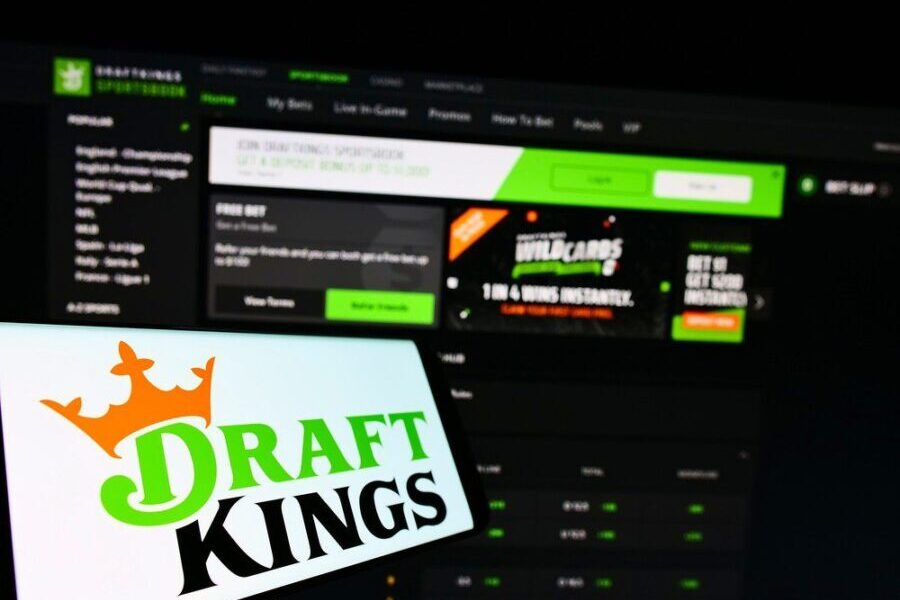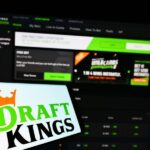DraftKings outlines plans for Missouri launch on December 1

DraftKings has announced plans to launch its sports betting app in Missouri after being granted a temporary mobile sports wagering license earlier this year by the Missouri Gaming Commission.
Customers will be able to access DraftKings betting options on December 1, including in-game wagering, odds boosts, and same-game parlays. Players will also have access to a range of responsible gaming tools and resources.
DraftKings currently operates in 28 states, as well as Puerto Rico, Washington, D.C., and Ontario, Canada. The Missouri launch will mark its twenty-ninth state of operation.
DraftKings Chief Revenue Officer Greg Karamitis said, “DraftKings is built for passionate sports fans, making Missouri an exciting jurisdiction for us to enter with its rich sports culture, and several professional teams across the state.
“This is an incredible time of year for sports fans with NFL, NBA, NHL, college football, and college basketball all in-season, and we look forward to elevating the experience for Missouri sports fans, responsibly, with our top-rated online sportsbook.”
The news comes after the operator announced last week it would become the official partner of the NHL’s St. Louis Blues. The Missouri-based team said the partnership would focus on responsible gambling initiatives and give DraftKings the rights to the St Louis Blues trademarks.
Abi Bray brings strong researching skills to the forefront of all of her writing, whether it’s the newest slots, industry trends or the ever changing legislation across the U.S, Asia and Australia, she maintains a keen eye for detail and a passion for reporting.
Verticals:
Sectors:
Topics:
Dig Deeper
The Backstory
Missouri’s slow build to a firm launch date
Missouri set a clear timeline for legal sports betting months before operators began unveiling local plans. In late summer, the Missouri Gaming Commission closed its initial application window and confirmed the market would go live on Dec. 1, underscoring a methodical licensing review that Chairwoman Jan Zimmerman said was “detailed by design” to vet applicants and ensure compliance. The agency’s stance and calendar, including a Sept. 12 cutoff for bids on certain licenses, were laid out as policymakers sought to stop betting dollars from flowing to neighboring states. State officials, including Councilman Wes Rogers, cast the rollout as a bid to keep gaming-related tax revenue in Missouri and to bolster the case for keeping marquee franchises in-state with the option to run sportsbooks at stadiums and online. That framing and timeline were reported in the commission’s update on the market’s Dec. 1 start in Missouri sports betting market to launch on 1 December.
The stakes were heightened by voter expectations and statutory milestones. A year earlier, Missourians backed legalization with language that set a hard deadline for statewide operations by Dec. 1, 2025. With that two-year window as a backstop, regulators pushed to stand up a compliant, competitive market this year while managing a complex mix of “tethered” licenses, which pair online sportsbooks with casinos or professional teams, and scarce “untethered” licenses that allow operators to go it alone. The structure created immediate competition among major brands and a parallel race by teams and casinos to secure partners, positioning Missouri as a new battleground for national sportsbooks aiming to expand in the Midwest.
Early applications previewed a crowded field
The first public signals of that competition came when two digital-first operators stepped forward. In midyear, DraftKings and Underdog filed early to operate in Missouri, setting the tone for a busy queue ahead of the July and September deadlines. While the state reserved only two untethered licenses, a broader set of opportunities remained for operators aligning with one of Missouri’s casinos or professional franchises. Reporting at the time noted that larger incumbents including FanDuel, Fanatics, Caesars, Rush Street Interactive, Penn and Bally’s were expected to join the fray, and that existing local relationships could shape the pairings to come. The initial wave of filings and the market’s two-track licensing model were detailed in DraftKings and Underdog first to apply for Missouri online betting licenses.
Missouri’s framework amplified strategic choices. A standalone license promised full control and brand prominence but came with significant scrutiny and caps on availability. Tethered routes offered speed to market and local affinity through team or casino partnerships. That mix mirrored trends in other states where major sports properties are central to promotion and fan engagement, particularly around in-venue activations and cross-channel advertising. For operators, the decision was as much about market share and unit economics as it was about compliance: pursue a scarce untethered slot or move quickly through a team or casino partnership to capture early adopters once the app stores open.
Licensing decisions reshaped operator strategy
The Missouri Gaming Commission’s award of the two untethered mobile licenses effectively set the opening lineup. Circa Sports and DraftKings won the standalone slots after a scorecard-driven evaluation that weighted seven constitutional criteria, including integrity, sustainability, safety, advertising plans, revenue potential, responsible gaming and the ability to grow the customer base. FanDuel, a finalist, missed on the untethered category and immediately pivoted to secure distribution through a club tie-up, announcing a partnership with St. Louis City SC to enter the market via a tethered path. The outcomes, and the reasoning behind them, were outlined in Circa Sports and DraftKings to receive mobile sports betting licenses in Missouri.
The decisions also surfaced policy trade-offs. Circa’s emphasis on high-stakes wagers raised questions about relative tax yields compared with larger rivals that spend heavily to acquire mass-market bettors. Regulators still concluded the two winners met constitutional standards and diversified the market’s competitive profile at launch. For DraftKings, the untethered award removed a key uncertainty and positioned the company to move quickly on marketing and partnerships timed to the state’s Dec. 1 go-live. FanDuel’s rapid pivot signaled that even operators without standalone licenses could carve out share through team alliances and omnichannel reach.
Teams lean into responsible-gambling partnerships
Missouri’s pro teams began preparing fans for the transition to legal betting with brand partnerships that foregrounded safer play. The NHL’s St. Louis Blues named DraftKings an official partner ahead of the Dec. 1 launch, integrating responsible gambling messaging into game-day programming and digital channels. The team said its pregame, in-arena segments will walk fans through budgeting and activity-tracking tools while new signage and media placements reinforce the theme across touchpoints. Rights to use Blues trademarks give the operator added lift in local marketing, and fan events are under consideration once the market is live. The scope of the tie-up and its emphasis on safeguards were described in St. Louis Blues sign up with DraftKings ahead of Missouri sports betting launch.
The team-focused approach dovetails with the state’s strategy to legitimize betting in highly visible, high-traffic environments while signaling consumer protection. As regulators framed it, bringing sportsbooks into stadiums and arenas is both a revenue play and part of a broader plan to keep fans, teams and tax dollars in Missouri. For operators, the tactic converts local passion into app installs and account funding while meeting regulators’ expectations for education and harm minimization at the point of promotion.
Responsible gaming turns into a competitive edge
The responsible-gambling thread runs through Missouri’s licensing criteria and team alliances, and it has become a central pillar of operator differentiation. DraftKings has moved to codify that posture at the executive level and across product features. Chief Responsible Gaming Officer Lori Kalani, who joined in April 2024, has pushed for universal familiarity with self-management tools and backed an industrywide posture through the Responsible Online Gaming Association. She has championed a shared self-exclusion initiative among ROGA members to reduce the ability of problem gamblers to rotate between platforms, and she has encouraged design choices that destigmatize usage of safety features, including a visual dashboard branded as My Stat Sheet that summarizes time spent and net results. Her remarks and the company’s agenda were covered in Lori Kalani outlines ambitious responsible gambling agenda for DraftKings and beyond.
Missouri’s review rubric expressly rewarded commitments to responsible gaming, and the market’s debut will test whether such tools both satisfy regulators and resonate with consumers during peak sports seasons. With NFL, NBA, NHL and college sports overlapping in December, operators are preparing for a surge of new users who will encounter in-app limits, trackers and education materials alongside promotions. The state’s aim is that a responsible-by-design market can capture revenue that previously leaked across borders or into unregulated sites while minimizing harm. For operators, credible investment in safeguards is now table stakes for license awards, team partnerships and long-term viability in Missouri.
Taken together, the rulemaking cadence, early applications, license awards and team deals have shaped a tightly choreographed opening. Missouri’s bet is that a balanced mix of national brands, local partnerships and visible consumer protections can scale a durable market. Operator strategies reflect that calculus, with standalones racing to lock in early share and tethered entrants leveraging stadiums and club platforms to close the gap. The Dec. 1 launch will show whether that design can meet the state’s revenue goals, protect consumers and plant Missouri firmly on the national sports betting map.







